Team Nica: In the Capital of The Revolution
Categorised in: Nicaragua 2016
By Performers Without Borders
If you want something done, ask a busy person.
A lot can happen in a week. By the time we get to Friday, Monday seems like a very long time ago and yet it flew by. In this way, time seems pretty elastic. Here are some of the ways in which we stretched out our last week:
- 9 shows to ~2390 people
- 7 workshop sessions to ~250 children
- Witnessed the birth of one horse
- Lifted one possibly dying horse into one definitely dying truck
- Alerted ~7 bin-men to one burning rubbish truck driving along one very dry road
- Raised 1,268 Cordobas for one partner organisation with one show
- Ate ~14 meals of rice and beans, ~56 tortillas, and not enough ice-cream
The list could continue with things like number of 20 litre drinking water containers carried from city centre to house, number of items of clothes hand-washed, meals cooked, floors swept, or workshop kit counted, but it would get tedious. For now, I think you have a pretty good idea of what we’re getting up to day-to-day.
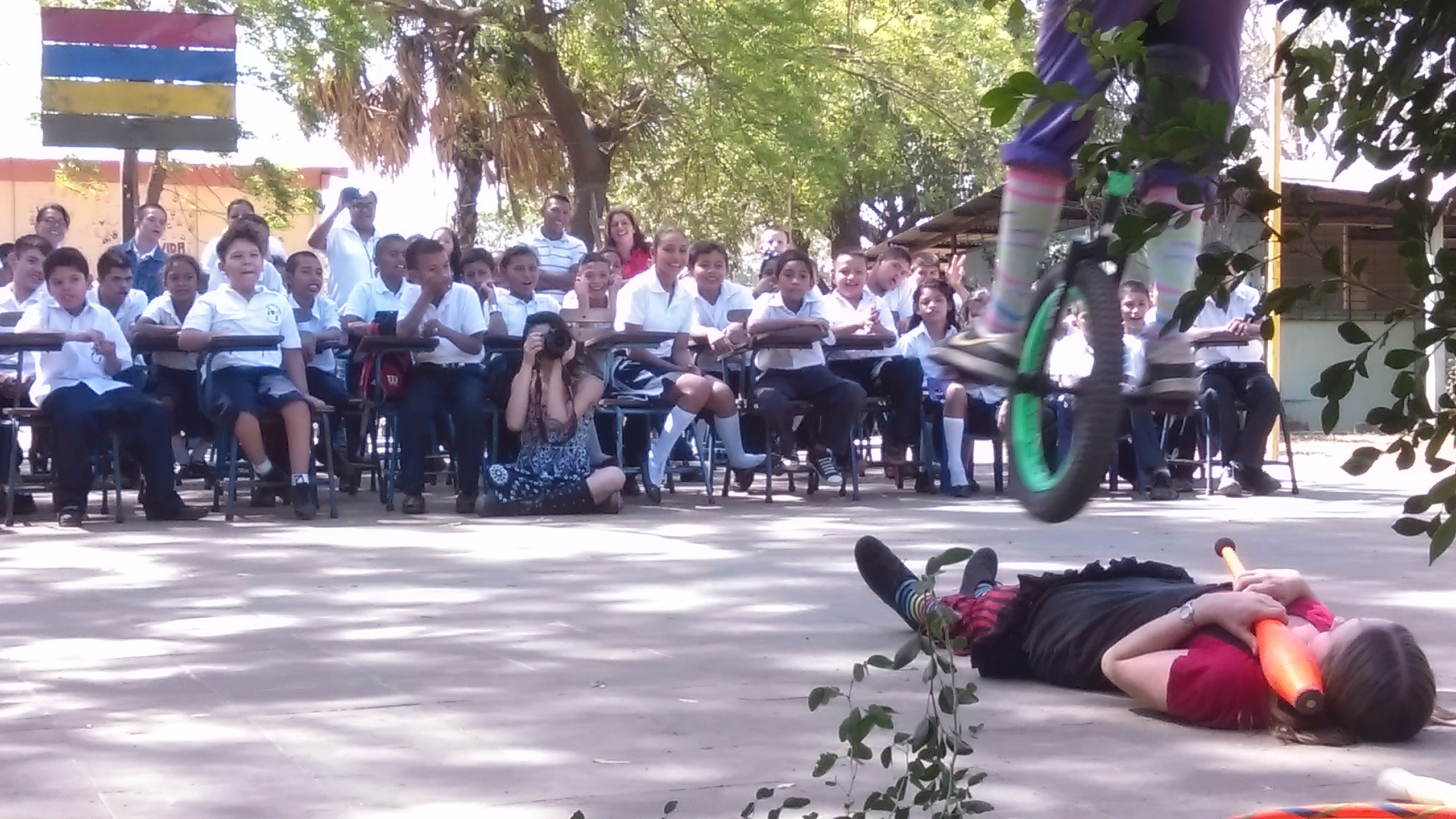
Andy and Rachel playing the trust game in our show at a school for children with disabilities. We did a workshop afterwards, too!
During this project in León, we have really experienced the benefits of a relationship that has developed between PWB and one of its partner organisations, Asociación Niñas y Niños del Fortín. And it is most definitely a mutually beneficial relationship. Living next door to the director of the organisation, Amalia, and her family, in the safe and tranquil gated family garden containing 3 houses, 2 mango trees, 2 lemon trees, and one annoyingly playful dog, has given PWB’s Nicaragua tour a rather luxurious feel. But as well as the luxuries, it has also meant a strong connection and easy communication (rare in Nicaragua!) between the team and the partner organisation. Friendly, smiling Amalia, has organised shows and workshops for us all around León and when either of us needs to talk about such things we can simply wander down the veranda and call through open doors.
This little ‘compound’ is also the park-up for the organisation’s general purpose Hilux pick-up truck which, along with the public camionetas (little trucks) has become a regular and hugely appreciated form of transport for us. Definitely one of the luxuries of this tour over the others I have done. Until the middle of last week, we were driven around by neighbour (son of Amalia) and all-round good guy, Edwing, but in an act of heroic circus equipment recovery he had an encounter with a rock and broke his big toe, resulting in the burden of a huge knee-high cast and crutches that are way too small. It’s very sad as he has really felt like part of the team with his enthusiasm and inclusion in many of our activities! After a trial run to the beach the previous weekend, I have been entrusted with the keys to the truck for a few journeys. For those that know me, you’ll have a good idea of my level of boyish excitement at this!
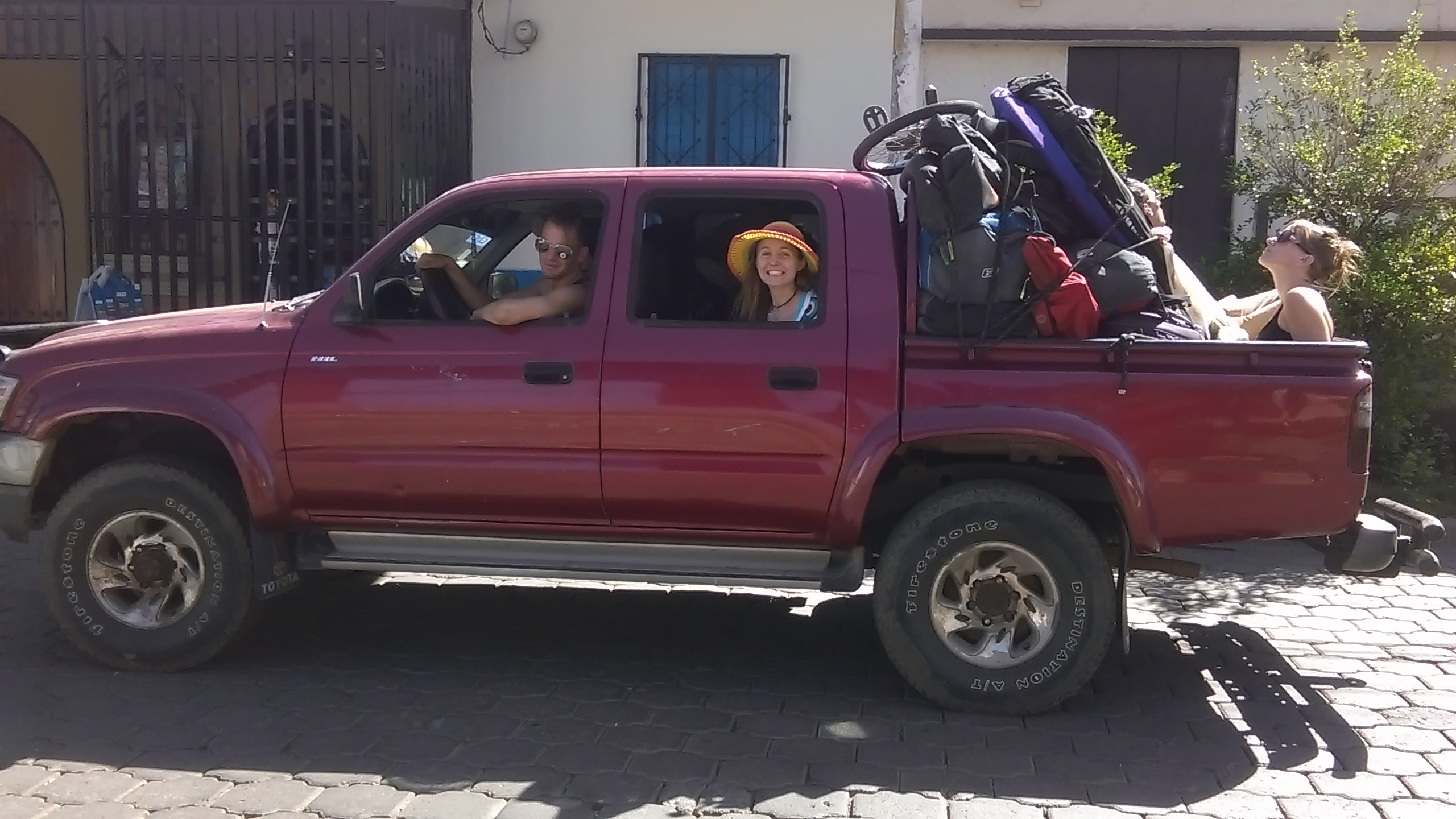
Living the Hilux life! Loaded with toys and smiles …
Asociación Niñas y Niños del Fortín was founded by Amalia in 1995 as part of a collaboration between small organisations working with children in response to the basurero (rubbish dump) crisis in the 80’s. Following the revolution and during the contra war, poor campasino (from the countryside) families headed to the cities on a survival mission. To cut a long story short, many of them ended up living on the huge rubbish dumps outside the cities, salvaging anything they could to survive. This included thousands of children living in harsh conditions. León’s dump was situated next to the old Fortín del Acosasco, a fortress built in the late 1800’s high up on a hillside overlooking León (it was repurposed during the Somoza dictatorship as a prison where anyone opposing the dictatorship was held and tortured, in the 1960/70’s). This is where Amalia’s association gets its name. In 1997 they secured some land to build a school-style building where they could provide activities, food, and help with education to children from the dump. It was also used to house 500 refugees in the aftermath of Hurricane Mitch in 1998 (before the association secured funding to build 52 houses for them outside of León). This is one of the locations where PWB has been working during its projects here. In 2001, in a push to become a more formally recognised organisation, the association officially became an NGO.
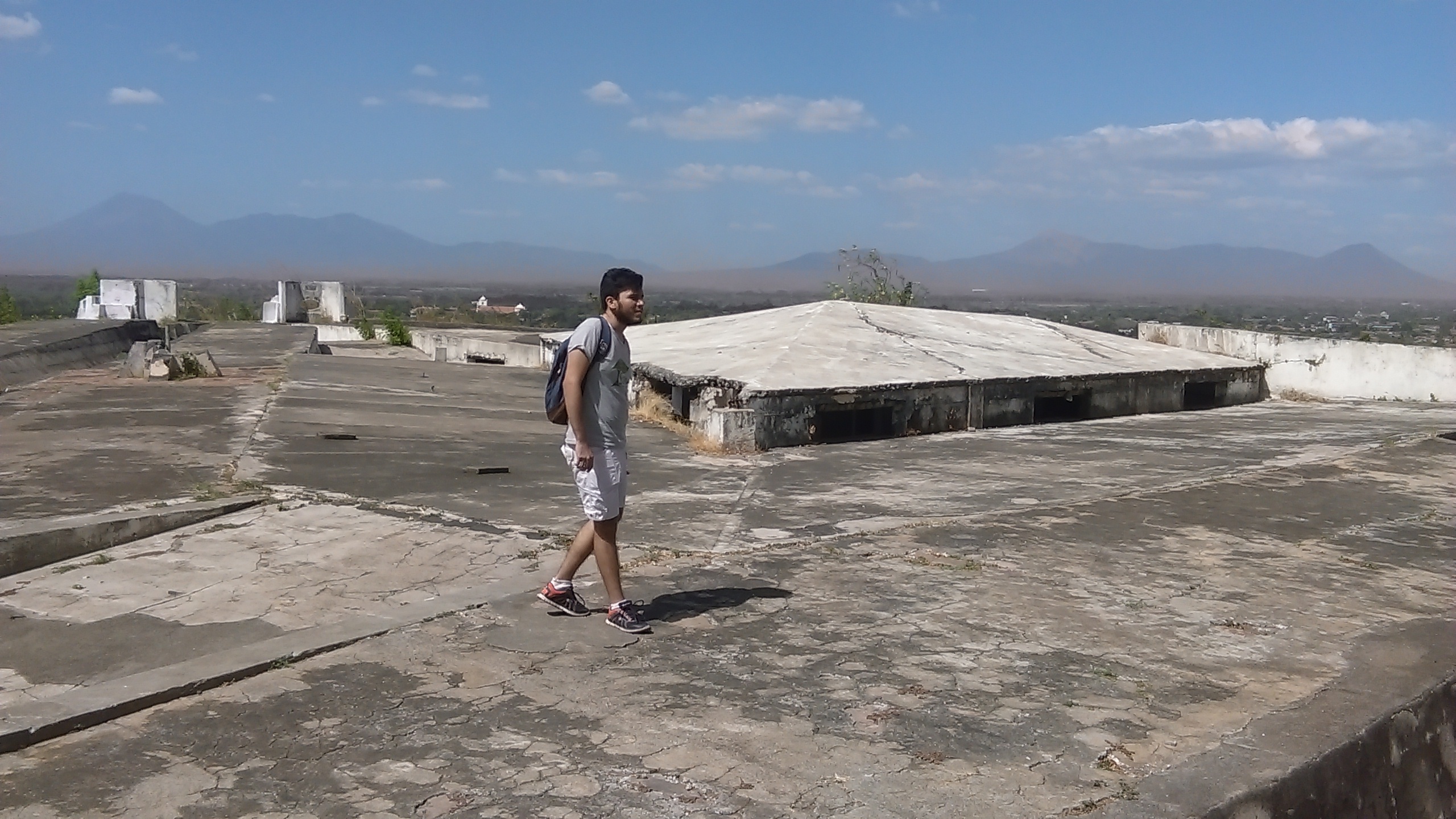
El Fortín del Acosasco with León and volcanoes in background.
It was at this time (1st April 2001 to be exact) that Amalia created Las Chavaladas, an offshoot of Niños del Fortín operating under the same association. Until then, there had been a project called ‘Niños de la Calle’ (children of the street) and when this organisation moved out of León Amalia recognised the need for something else and took on the children that were left behind to start the project Las Chavaladas. The name comes from a term used to affectionately refer to young people in an informal way. Amalia felt this was more appropriate than referring to them as street children or similar, when the aim of the project is to be a safe place where the children want to be! Let this be a small example of the positive attitude and relationship that Asociación Niñas y Niños del Fortín has with the children.
A question that is asked a lot is how do these organisations ‘find’ the children they work with? Las Chavaladas has a system and it goes something like this:
- Knowing how many children they can work with, depending on budget and number of trained staff available.
- Meeting children in the markets/streets/etc. and assessing/investigating their situation by talking to them and anyone they can find who has connections with them (maybe other children).
- Finding out about any connections with family members and establishing contact with them.
- The children are invited to take part in activities in the centre starting with just an hour or two at a time and progressing on from there as they develop a connection and trust with each other.
- If the child is in a ‘crisis’ situation, seeking permission from family to provide emergency accommodation.
This process is carried out by professionals who work with the organisation and they often spend months pursuing cases while having to deal with very difficult situations involving anything from drugs (on part of the child or family members) to violence to sexual abuse. Once they have established a child’s involvement in the centre, the challenge is not over. Because of lack of governmental permission/support, the association is unable to house children permanently which means the children are mostly returning to the streets or their less than satisfactory home lives overnight so each day that a child returns to the centre is an achievement in itself. And this means the centre needs constant activities running to keep the children interested, as well as provisions such as food that the children would otherwise be spending their time sourcing in the streets.
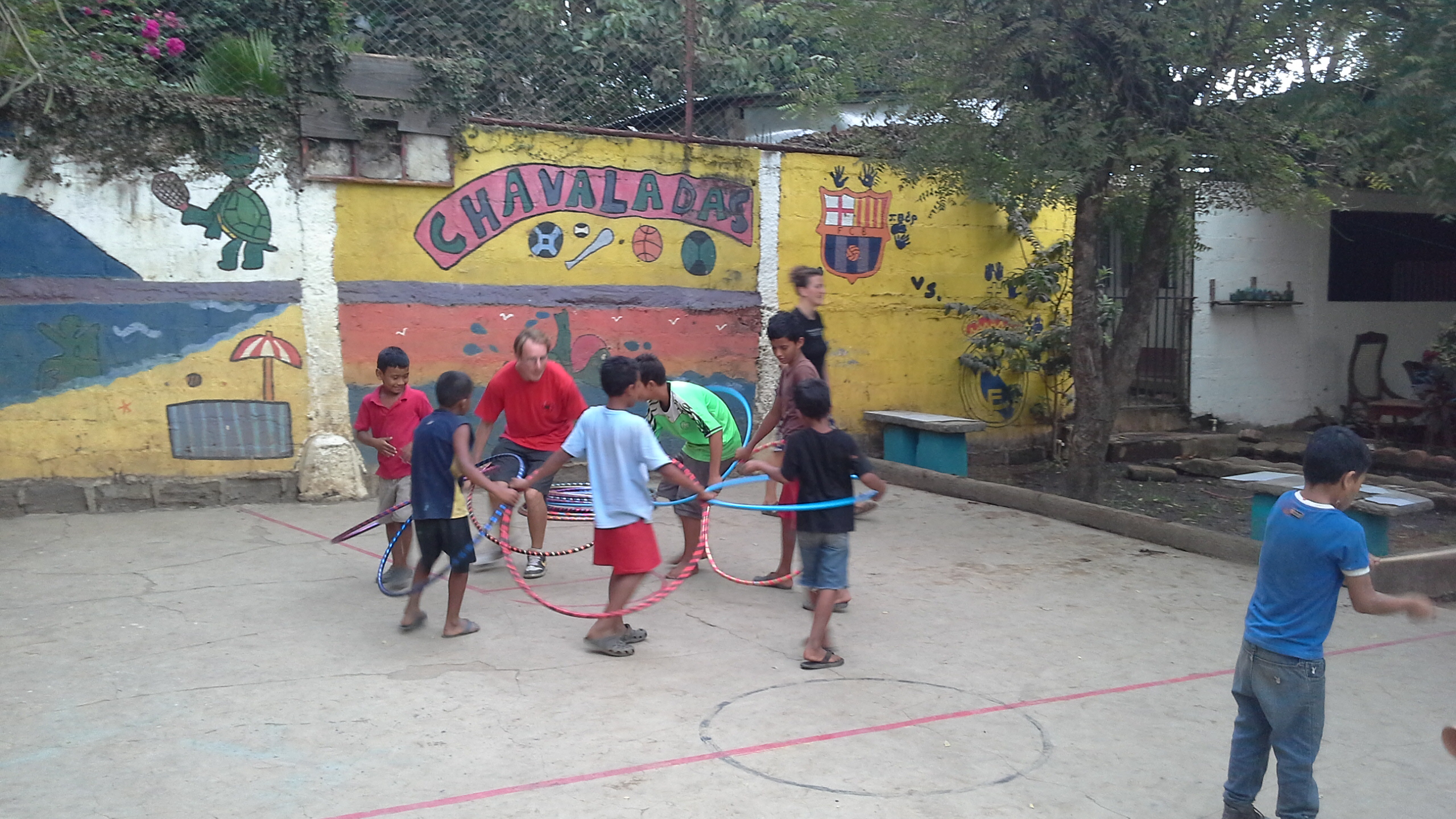
To get the full story of the association I carried out a bit of an ‘interview’ with Amalia. It was mostly to get the facts right and develop a fuller view of the bigger picture but I thought I’d finish by asking what PWB’s project meant to her and her organisation. Here are some points that she made:
- Es muy importante.
- Conecta los niños con sus abilidades – It connects the children with their abilities.
- It helps the organisation’s employees learn other fun techniques to engage with the children.
- Ludopedagogia (teaching with games/fun techniques) is their chosen way to engage with the children so PWB’s work is perfect here.
This blog post hasn’t exactly been a rundown of what we got up to last week, and it’s also definitely important to remind you that Amalia’s association is not PWB’s only partner here but Niños del Fortín and Las Chavaladas have most certainly fixed their place in our hearts. It would of course be a much longer blog if I tried to cover the story of everyone we work with here so I hope that by going into some more detail about just one organisation, it gives you an idea of the overall situation here, the difficult lives that many children face, the type of work our partner organisations do in general, and why PWB has found a place here for a social performance arts project.
Whenever I meet people who are running organisations like this, I find myself wondering what their story is. Amalia is the kind of person who, when asked about herself, answers with stories about the association and the families it helps. Yesterday she invited me to go on one last drive in the Hilux to visit El Fortín del Acosasco, the rubbish dump, and some communities in these areas where some of the poorest people in Nicaragua live (the people who we have been working with at the children’s centres). While driving along dirt roads, walking over vast dumps, and peering into old torture chambers, I picked up snippets of information about Amalia’s story. At one point, while talking about the sorry state of places like The Museum of The Revolution in central León (the ‘Capital of The Revolution’) and the dramatically poignant but deserted and wrecked El Fortín, Amalia let slip about her involvement in the revolutionary war in the 70’s. She played it down with a modest smile and made out like it didn’t mean much, which maybe it didn’t alongside the abandoned tomb-like fortress looming over León with its torture-chambers, but everything is relative and relatively speaking, being a 16 year old girl-soldier firing weapons and being held at gunpoint means quite a lot. Amalia, with her calm and caring demeanour and absolute dedication to helping people and investing in a positive future for this country, is an inspirational woman. If we can continue to do things to help people like her carry out their work, then we are, undoubtedly, doing a good thing.
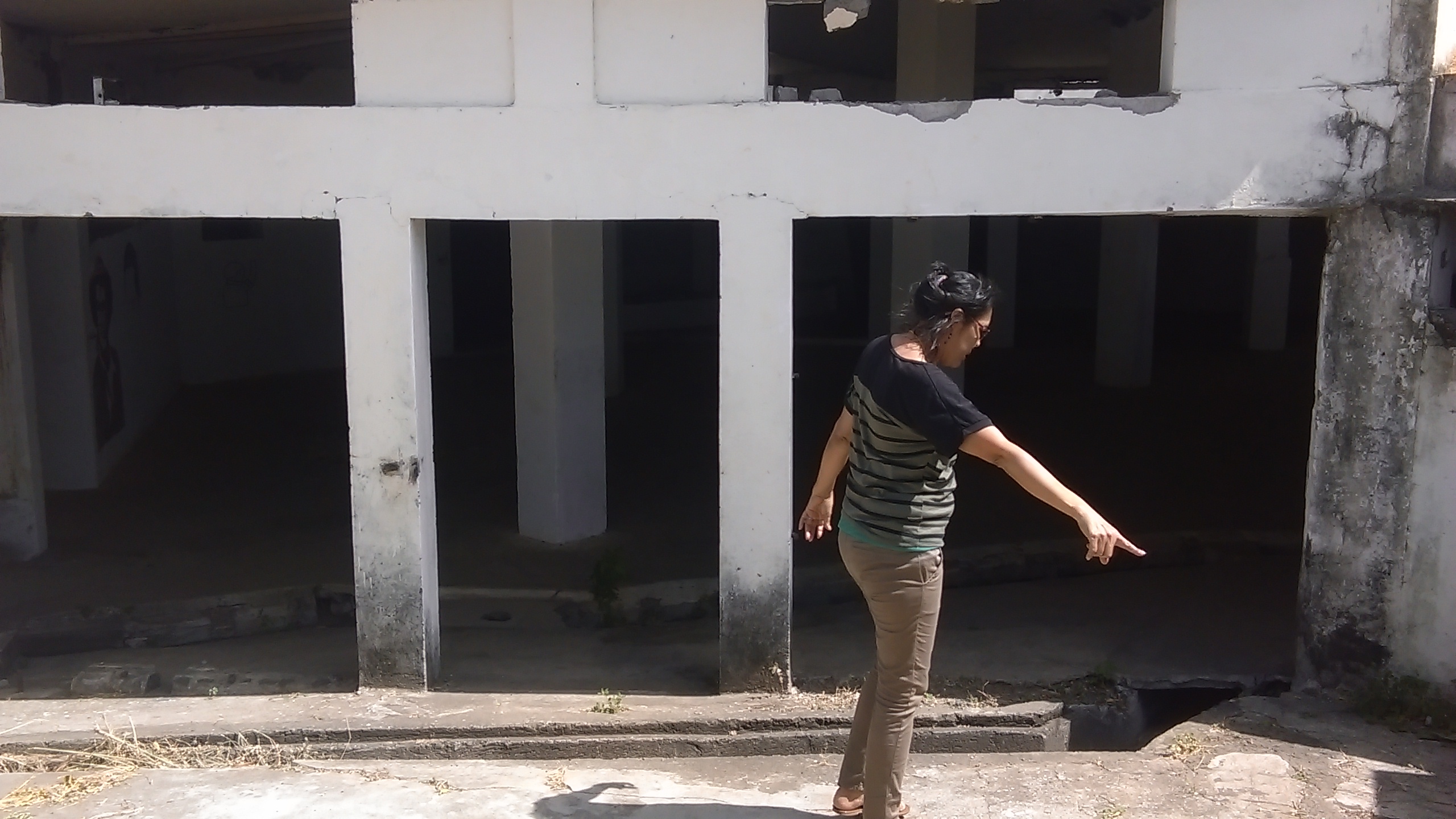
Amalia showing me around El Fortín del Acosasco
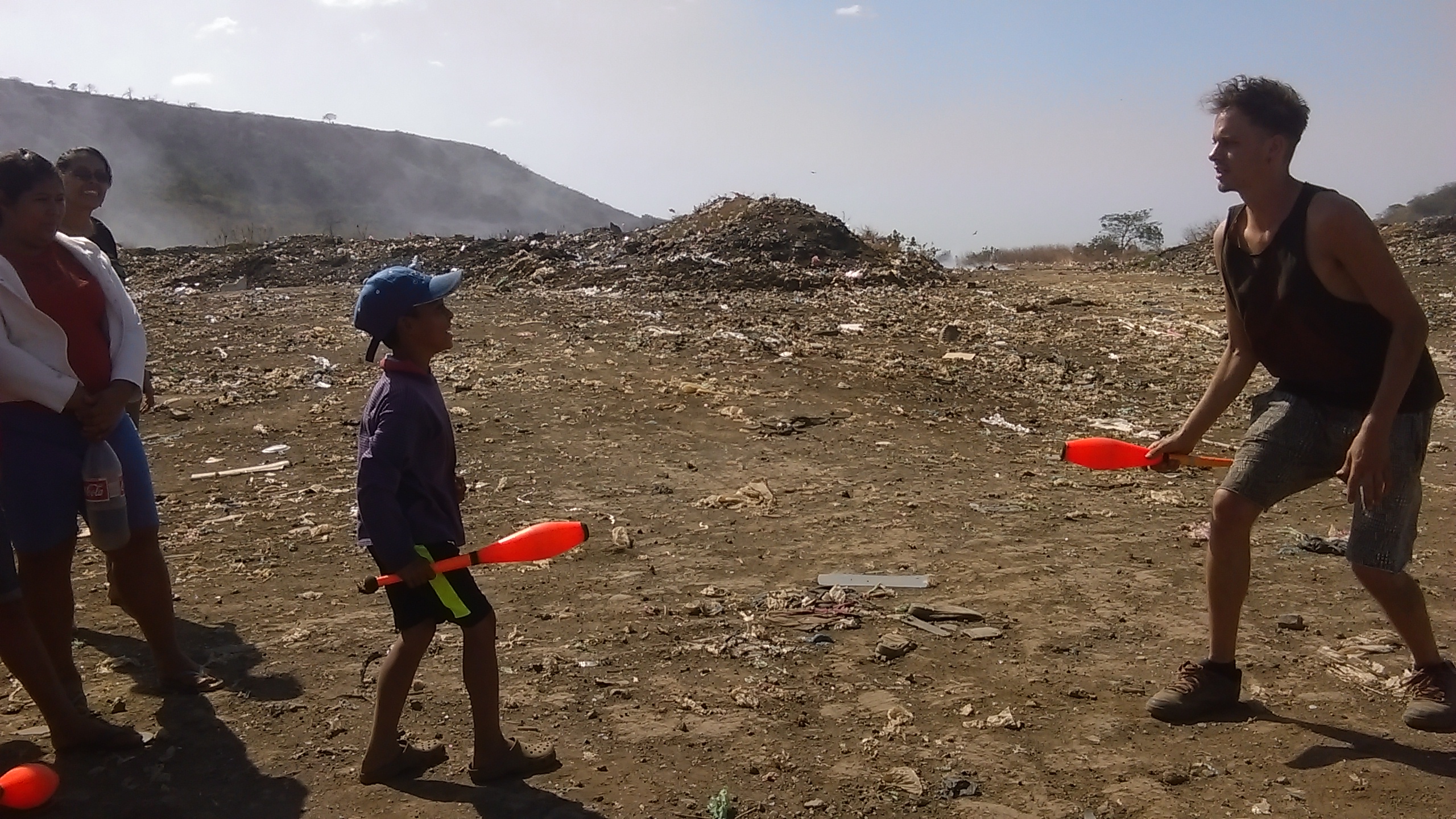
Juggling with the children who collect ‘valuable’ rubbish on the dump. The smog in the background is smoke from burning rubbish.
Thanks for reading. Love to you all.
Jacob x

Add the first comment?
Post a comment?
poemogram
Great article Jake – painting a picture of wonderful work all round.
Maggie
Hola jake, it was perceptive of you to write about amalia’s experiences in the contra years, it is a recent bit of history that lots of the current travellers going through nica don’t necessarily seem to appreciate, too busy volcano boarding or granada partying. When we first came upon these experiences through Rigo and his family several years ago and trips to estelí and solentiname too, I was just knocked for six thinking that will and rob live in Europe and that the whole European project was about making sure that this kind of warfare didn’t happen again in Europe . No-one got it absolutely right in the Balkans, but by and large we don’t have to wield a weapon at 16. By extension important to vote pro Europe in the upcoming referendum!
We just travelled a bit with Cbs Californian cousin who was blissfully unaware of the US of A dimension in nica, in c America as a whole… All a bit startling.
Best luck with the rest of the trip, nice to meet your mum, hope we catch up again this summer, Scotland maybe. Xx
Patsy
Thanks for sharing your amazing adventures!